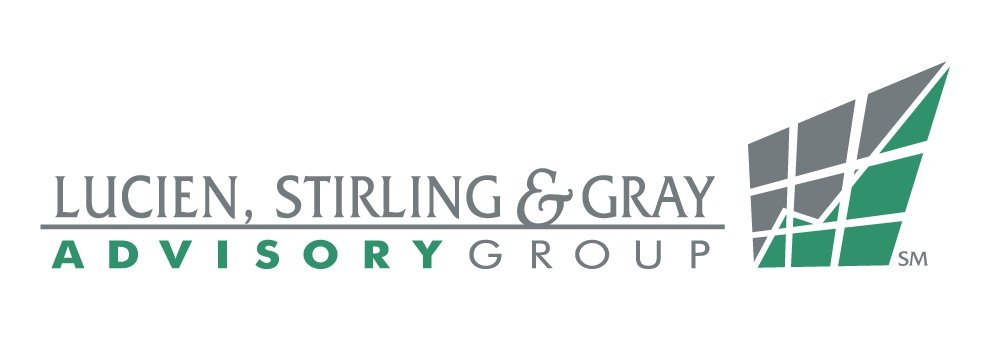“You Are What You Share” (…both willingly & unwillingly)
By - The LSG Team
Picture this: relief washes over you as you file your annual tax return—just in time for the April 15th deadline. But then a notice from the IRS informs you that more than one return was filed for you and a refund has already been issued. Where do you go from here?
Unfortunately, a few of our clients were confronted with this issue and in turn were launched into the process of uncovering tax-related identity theft. Tax-related identity theft, just one specific type falling under the umbrella term “identity theft,” prompted the IRS to pay out $5.8 billion in 2013 in fraudulent refunds according to a report issued by the Government Accountability Office in early 2015. Along with the $5.8 billion is the unknown amount of money associated with undetected fraud. The staggering amount is the estimated $24.2 billion in fraudulent refunds that thankfully were prevented. Often it isn’t until you put yourself in the shoes of a victim of identity theft going through the reparation process that you realize the daunting meaning of these numbers.
Types of Identity Theft:
Financial Identity Theft
Medical Identity Theft
Tax Identity Theft
Child Identity Theft
Small Business Identity Theft
According to The University of Texas at Austin Center for Identity
April’s issue of Financial Advisor Magazine puts the spotlight on Cybercrime – For the financial advisor industry, all eyes have turned to this growing threat. This month at Lucien, Stirling & Gray, we are aiming to help educate our clients on identity theft and inform them of the steps they can take to help protect their privacy. We also want to make a point to revisit the privacy policies we have in place as a firm, which can be accessed at any time through our website or by contacting our office.
At Lucien, Stirling & Gray Advisory Group, we are committed to safeguarding the confidential information of our clients. Your personally identifiable information, whether it is stored physically or digitally, is never used for commercial purposes. This means we do not sell client information nor do we purchase lists of information. Physical documents containing any client information are shredded when we no longer need them for business purposes. At the times when we must dispose of more paperwork than our office shredders can handle a professional service comes on site to shred bulk amounts of paperwork. When computers must be replaced in our offices the hard drives are removed and wiped, then are physically destroyed. In addition, your financial advisor or any other member of the staff are not permitted to store sensitive information, other than your name, phone number and address, on their own personal devices (cell phones, tablets, etc.).
Examples of Personally Identifying Information:
Full Name
Military Rank
Date of Birth
Marital Status
Home Address
Religious Affiliation
Home Phone Number
Race
Social Security Number
Pets’ Names
According to The University of Texas at Austin Center for Identity
Though technology is set up to be the main villain in most cases of identity theft, it is important to remember what vital information is contained in your receipts, credit offers, credit applications, insurance forms, medical statements, bank statements and other personal documents. Disposing of these documents when you no longer need them (after tax season is a good time to make that decision) is encouraged by the Federal Trade Commission as a way to keep your personal information secure offline. Here’s a resource for that: The Austin Chapter of ARMA will be holding their Shred Day for individuals and families on May 16th from 8:00AM-1:30PM at the ACC Highland Campus. This bi-annual event is organized not only to help households manage their home records but also to protect against identity theft.
On May 21st we will be holding a Fireside Chat at our office with guest speaker Katie Stephens from the Center for Identity at the University of Texas at Austin. Established by the university to serve as a center of expertise on privacy and security, The Center for Identity focuses on various sectors in our society that are particularly affected by identity theft, fraud, and abuse—Finance being one of them. The organization has developed tools like the IDWise Risk Kit app, accessible through The Center for Identity’s website, to help individuals protect their identity by breaking down the most common threats to personal information into categories based on your age. Our Fireside Chat guests can expect to have their questions fielded by an expert, and come away with tools like the IDWise Risk Kit and tips to help in being pro-active against identity theft.
As always, we are open to your feedback and would love to hear from you. We hope you will join us at our Fireside Chat at the end of May and encourage you, in the meantime, to explore any of the aforementioned sites:
For more information about The University of Texas Center for Identity: https://identity.utexas.edu/
For more information about the Austin Chapter of ARMA International: http://www.austinarma.com/
To view the Lucien, Stirling & Gray Privacy Policy:https://www.lsggroup.com/documents/ADVPrivacyPolicyNoticetoClientsandBCP.pdf
For more information and to RSVP to our Fireside Chat: https://www.lsggroup.com/fireside-chat.asp

